HS-LS4-1
Communicate scientific information that common ancestry and biological evolution are supported by multiple lines of empirical evidence.
-
 Archaeology
ArchaeologyNeandertals were a lot like our human ancestors
From toolmaking to healthcare, new research finds that Neandertals shared many cultural and social similarities with our human ancestors.
-
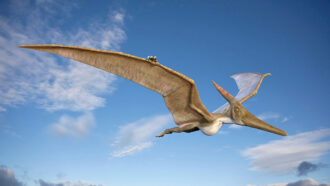 Fossils
FossilsLet’s learn about pterosaurs
These ancient flying reptiles were not dinosaurs, but they were close relatives.
-
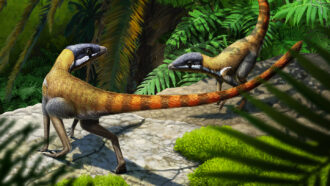 Fossils
FossilsSprinting reptiles may have been forerunners of soaring pterosaurs
A new analysis of an old fossil supports the idea that winged pterosaurs evolved from swift and tiny two-legged ancestors.
-
 Health & Medicine
Health & MedicineExamining Neandertal and Denisovan DNA wins a 2022 Nobel Prize
Svante Pääbo figured out how to examine the genetic material from these hominid ‘cousins’ of modern humans.
By Tina Hesman Saey and Aimee Cunningham -
 Fossils
FossilsBizarre ancient critter has spines but no anus
The spiny discovery moves this minion lookalike off a distant limb on the human family tree.
By Anna Gibbs -
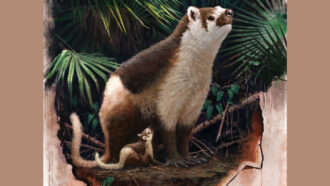 Fossils
FossilsAncient ‘ManBearPig’ mammal lived fast — and died young
Developing in the womb for a while — but being born ready to take on the world — may have helped post-dinosaur mammals rise to dominance.
-
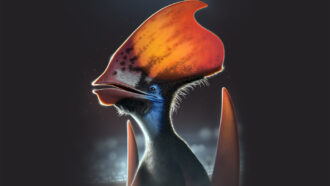 Fossils
FossilsBright-colored feathers may have topped pterosaurs’ heads
Fossil remains of a flying reptile hint that their vibrant crests may have originated 250 million years ago in a common ancestor with dinosaurs.
-
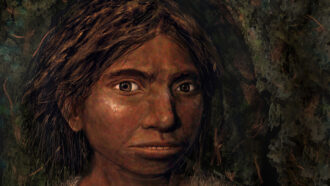 Humans
HumansScientists Say: Denisovan
The Denisovans were a recently discovered population of ancient hominids.
-
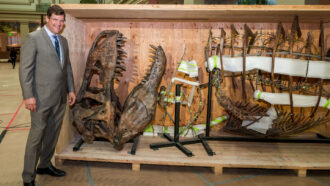 Fossils
FossilsCool Jobs: Bringing paleontology to the people
From museums to movies, these three paleontologists totally rock their connections with the public.
By Beth Geiger -
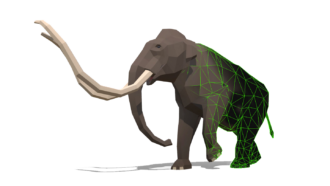 Tech
TechSmartphones can now bring Ice Age animals back to ‘life’
Scientists bring Ice Age creatures to life with augmented reality. You can view these creatures in your own world on a smartphone.
By Laura Allen -
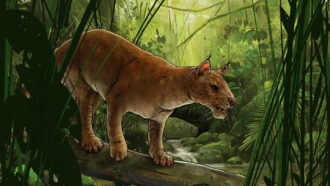 Fossils
FossilsOne of the earliest meat-eating mammals was saber-toothed
Millions of years before the evolution of saber-toothed cats, a newly discovered "hypercarnivore" prowled the forests of what is now San Diego.
-
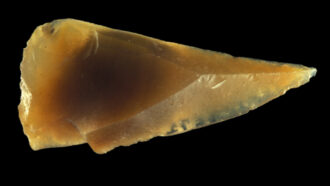 Archaeology
ArchaeologyOur species may have reached Europe while Neandertals were there
Archaeological finds from an ancient French rock-shelter show periodic settlements by both populations, just not at the same time.
By Bruce Bower